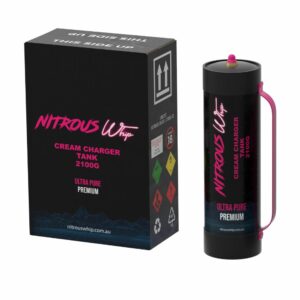Introduction
In recent years, making use of nangs, or nitrous oxide (N2O), has gained considerable attention across various countries due to its emerging status as a leisure compound. Frequently referred to as "laughing gas," this gas is generally utilized in cooking applications, especially in whipped cream chargers like NitrousWhip, MOSA, and BestWhip However, the leisure usage of nangs raises questions about their legal status worldwide. This extensive post delves deep into the legal implications surrounding nangs internationally, analyzing how various nations regulate their usage, distribution, and possession.
Exploring the Legal Status of Nangs Around the World
The term "nangs" refers to little canisters filled with nitrous oxide, which are typically utilized for cooking functions however have gained prestige for their leisure usage. The legality of these canisters differs substantially from one nation to another. In some locations, they are completely legal; in others, they are either restricted or banned outright.
Understanding Nitrous Oxide (N2O)
Nitrous oxide is a colorless gas with a slightly sweet odor that is frequently used in medical settings for anesthesia and discomfort relief. It has actually likewise discovered its way into the culinary world as a propellant in whipped cream dispensers. The appeal of nitrous oxide amongst party-goers originates from its blissful impacts when inhaled.
The Increase of Cream Chargers
Cream battery chargers-- small cylinders containing N2O-- are widely available in grocery stores and online stores. Brand names like NitrousWhip and BestWhip have actually made these products quickly accessible to consumers. While many individuals use them properly for cooking, there is a growing pattern of abuse among more youthful people seeking recreational highs.
Global Point of views on Nangs: A Legal Overview
Different nations have actually embraced differing positions on nangs based upon cultural understandings around drug use and public health concerns.
Australia: A Mixed Bag
In Australia, nangs are legal to possess and sell, but their use is managed under particular conditions. Some states have presented constraints on sales to minors or specific licensing requirements for vendors offering cream chargers.
State-Specific Regulations
New South Wales: Here, offering nitrous oxide for leisure purposes is prohibited. Victoria: Similar limitations use; however, ownership stays legal. Queensland: Laws vary significantly between regions.The United States: Patchwork Legislation
The legality of nitrous oxide varies commonly across states in the U.S., with some states enforcing rigorous policies while others remain mainly unregulated.
Federal vs State Laws
- At the federal level, nitrous oxide is classified as an anesthetic and not straight controlled. Some states have actually taken proactive steps versus sale for leisure usage; California has laws versus using it as a psychedelic substance.
Europe: Varied Approaches
Countries within Europe display a wide range of mindsets towards N2O:

United Kingdom: Guideline without Ban
In the Nang Melbourne UK, nitrous oxide can be offered lawfully however under strict policies created to avoid misuse.
Psychoactive Compounds Act 2016: This law limits any substance planned for human usage if it causes a psychedelic effect.Germany: Cautious Acceptance
Germany permits the sale of cream chargers however limits their circulation through drug stores and licensed outlets just.
Asia's Stance on Nangs
In Asian countries like Japan and South Korea, nitrous oxide faces strict regulations due to public safety concerns related to substance abuse.
Japan's Rigorous Controls
Possession may lead to extreme penalties showing society's zero-tolerance method toward drugs.
Health Issues Related to Nangs
While checking out the legal status of nangs around the world is vital, it's essential to highlight health threats connected with their misuse.
Short-term Impacts of Nitrous Oxide Use
Euphoria Dizziness Loss of motor controlLong-term Health Risks
Misuse can lead to vitamin B12 shortage and neurological damage with time due to extended exposure or excessive inhalation.
FAQs about Nangs
1. Exactly what are nangs?
Nangs refer to little canisters filled with nitrous oxide (N2O) mainly used for whipping cream however significantly misused for their euphoric results when inhaled.

2. Are nangs illegal everywhere?
No, the legality differs by nation; some places allow them for culinary purposes while limiting recreational use.
3. Can you face penalties for having nangs?
Yes! Charges depend on local laws; some regions impose fines while others bring criminal charges for misuse or distribution without correct licenses.
4. What prevail brands related to cream chargers?
Brands such as NitrousWhip, MOSA, and BestWhip are popular amongst customers trying to find quality cream chargers.
5. How should cream chargers be stored?
They ought to be kept upright in a cool location away from direct sunlight or heat sources due to pressurization threats associated with temperature level changes.
6. Is there any safe way to utilize nangs?
Using them strictly according to producer standards for cooking purposes minimizes health dangers while ensuring compliance with local laws relating to ownership and usage.
Conclusion
As we've checked out throughout this post titled Exploring the Legal Status of Nangs Around the World, it appears that understanding both legal structures and health implications surrounding nangs is important as this phenomenon continues to progress worldwide. The juxtaposition in between cooking utility and possible abuse creates an intricate landscape that necessitates notified discourse amongst policymakers, health specialists, and citizens alike worrying responsible usage practices moving forward.
By staying aware of local legislation combined with finest safety practices regarding cream charger usage-- whether making use of items such as NitrousWhip or BestWhip-- we can hope that society browses this surface securely while maximizing enjoyment stemmed from legitimate uses without compromising public health standards or security concerns overall.